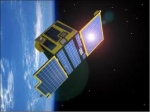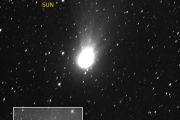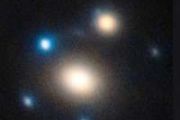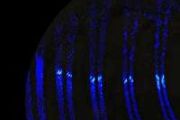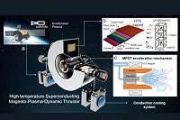Displaying items by tag: PROBA (sat family)
QinetiQ Space
QinetiQ Space is a space system integrator.
QinetiQ Space has developed instruments and facilities for scientific research in a microgravity environment, such as material and fluid science research, on both manned and unmanned missions. A lot of these facilities are used on a daily basis by the astronauts in the International Space Station.
QinetiQ Space offers space mechanisms for docking; separation and one-shot opening mechanisms. We have delivered numerous instruments for scientific research for both manned and unmanned missions. Many of these facilities are used on a daily basis by astronauts on the ISS.
In the mid of the nineties QinetiQ Space took the initiative to deploy small satellite activities in Belgium. After the successful launch and demonstration of the PROBA1 satellite QinetiQ Space proved the potential of small satellites for remote sensing applications such as earth observation, environmental monitoring, security and others. Since then QinetiQ Space has established its role as the principal provider of LightSats to the European Space Agency (ESA) by taking up the prime contractor ship for PROBA2 (solar science) and PROBA-V (vegetation) and a key role in the formation flying mission PROBA3.
Proba (satellite family)
PROBA (Project for On-Board Autonomy) is a family of small Earth observation satellites, part of the ESA's MicroSat program.
Proba-1 was launched by ISRO in 2001. It is a technology demonstrator turned operational Earth observation mission - ESA's smallest, less than a cubic metre in volume. Proba-1's main instrument is the Compact High Resolution Imaging Spectrometer (CHRIS), acquiring 13 square km scenes at 17 m spatial resolution in 18 user-selected visible and near-infrared wavelengths. This agile satellite can also deliver up to five different viewing angles. Nearly 20,000 environmental science images have been acquired. This small boxlike system (40×60×80 cm; 95 kg), with solar panel collectors on its surface, has remarkable image-making qualities. It hosts two Earth Observation instruments (dubbed CHRIS and HRC). It is a hyperspectral system (200 narrow bands) that image at 30 m, plus three in the visible that have 15 m resolution.
Proba-2, the second satellite in the Proba-series, has been launched on November 2, 2009, together with the SMOS mission. Proba 2 is a 0.6 × 0.6 × 0.8 meter, box-shaped structure weighing 130 kg with two deployable solar panels. It has a total of four instruments; two complementary solar observation instruments dubbed SWAP and LYRA, and two plasma measurement instruments dubbed TPMU and DSLP.
Further planned satellites in the Proba series are the formation flight Proba-3 and Proba-V (Proba Vegetation). They are on-going developments without defined launch dates.


